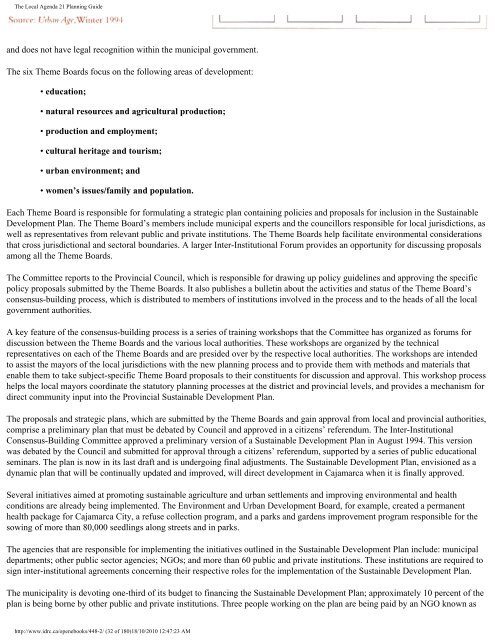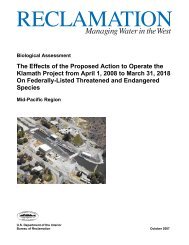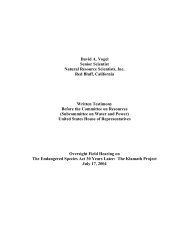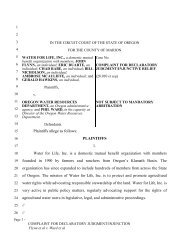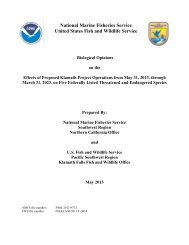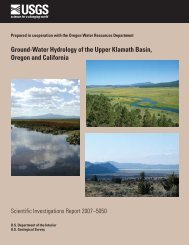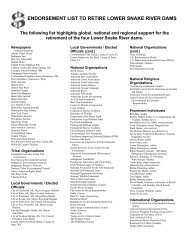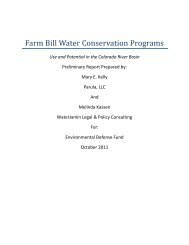The Local Agenda 21 Planning Guide - Democrats Against UN ...
The Local Agenda 21 Planning Guide - Democrats Against UN ...
The Local Agenda 21 Planning Guide - Democrats Against UN ...
You also want an ePaper? Increase the reach of your titles
YUMPU automatically turns print PDFs into web optimized ePapers that Google loves.
<strong>The</strong> <strong>Local</strong> <strong>Agenda</strong> <strong>21</strong> <strong>Planning</strong> <strong>Guide</strong><br />
and does not have legal recognition within the municipal government.<br />
<strong>The</strong> six <strong>The</strong>me Boards focus on the following areas of development:<br />
• education;<br />
• natural resources and agricultural production;<br />
• production and employment;<br />
• cultural heritage and tourism;<br />
• urban environment; and<br />
• women’s issues/family and population.<br />
Each <strong>The</strong>me Board is responsible for formulating a strategic plan containing policies and proposals for inclusion in the Sustainable<br />
Development Plan. <strong>The</strong> <strong>The</strong>me Board’s members include municipal experts and the councillors responsible for local jurisdictions, as<br />
well as representatives from relevant public and private institutions. <strong>The</strong> <strong>The</strong>me Boards help facilitate environmental considerations<br />
that cross jurisdictional and sectoral boundaries. A larger Inter-Institutional Forum provides an opportunity for discussing proposals<br />
among all the <strong>The</strong>me Boards.<br />
<strong>The</strong> Committee reports to the Provincial Council, which is responsible for drawing up policy guidelines and approving the specific<br />
policy proposals submitted by the <strong>The</strong>me Boards. It also publishes a bulletin about the activities and status of the <strong>The</strong>me Board’s<br />
consensus-building process, which is distributed to members of institutions involved in the process and to the heads of all the local<br />
government authorities.<br />
A key feature of the consensus-building process is a series of training workshops that the Committee has organized as forums for<br />
discussion between the <strong>The</strong>me Boards and the various local authorities. <strong>The</strong>se workshops are organized by the technical<br />
representatives on each of the <strong>The</strong>me Boards and are presided over by the respective local authorities. <strong>The</strong> workshops are intended<br />
to assist the mayors of the local jurisdictions with the new planning process and to provide them with methods and materials that<br />
enable them to take subject-specific <strong>The</strong>me Board proposals to their constituents for discussion and approval. This workshop process<br />
helps the local mayors coordinate the statutory planning processes at the district and provincial levels, and provides a mechanism for<br />
direct community input into the Provincial Sustainable Development Plan.<br />
<strong>The</strong> proposals and strategic plans, which are submitted by the <strong>The</strong>me Boards and gain approval from local and provincial authorities,<br />
comprise a preliminary plan that must be debated by Council and approved in a citizens’ referendum. <strong>The</strong> Inter-Institutional<br />
Consensus-Building Committee approved a preliminary version of a Sustainable Development Plan in August 1994. This version<br />
was debated by the Council and submitted for approval through a citizens’ referendum, supported by a series of public educational<br />
seminars. <strong>The</strong> plan is now in its last draft and is undergoing final adjustments. <strong>The</strong> Sustainable Development Plan, envisioned as a<br />
dynamic plan that will be continually updated and improved, will direct development in Cajamarca when it is finally approved.<br />
Several initiatives aimed at promoting sustainable agriculture and urban settlements and improving environmental and health<br />
conditions are already being implemented. <strong>The</strong> Environment and Urban Development Board, for example, created a permanent<br />
health package for Cajamarca City, a refuse collection program, and a parks and gardens improvement program responsible for the<br />
sowing of more than 80,000 seedlings along streets and in parks.<br />
<strong>The</strong> agencies that are responsible for implementing the initiatives outlined in the Sustainable Development Plan include: municipal<br />
departments; other public sector agencies; NGOs; and more than 60 public and private institutions. <strong>The</strong>se institutions are required to<br />
sign inter-institutional agreements concerning their respective roles for the implementation of the Sustainable Development Plan.<br />
<strong>The</strong> municipality is devoting one-third of its budget to financing the Sustainable Development Plan; approximately 10 percent of the<br />
plan is being borne by other public and private institutions. Three people working on the plan are being paid by an NGO known as<br />
http://www.idrc.ca/openebooks/448-2/ (32 of 180)18/10/2010 12:47:23 AM


